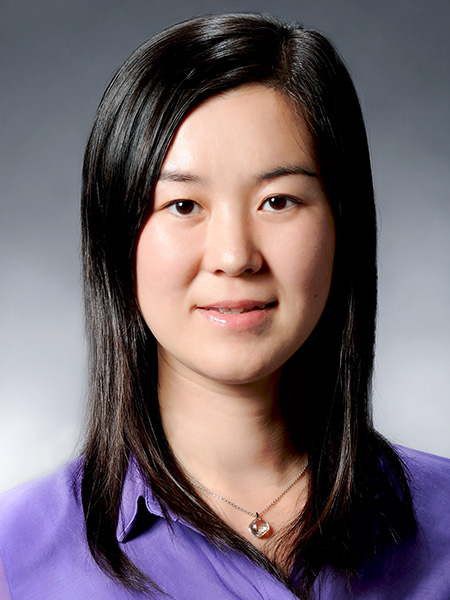AAE adds professor in autonomy and control
Ran Dai will join AAE faculty as an associate professor effective August 17.
Dai’s research focuses on control of autonomous systems, numerical optimization and networked dynamical systems. Her group has developed real-time optimal control algorithms for decision making and path planning of autonomous systems, especially for unmanned ground and aerial vehicles.

Dai will teach AAE 421, Flight Dynamics and Control, in the fall.
“I am very excited for the new journey at Purdue where I will work with colleagues and students to explore new technologies in aerospace engineering,” Dai said.
Prior to Purdue, Dai was an assistant professor at Ohio State University (2017-2020) and Iowa State University (2012-17).
After receiving a Ph.D. from Auburn University, Dai spent three years in industry as an engineer at Dynamic Research Inc., in Torrance, Calif.
“I feel fortunate to have had a chance to work with engineers in the automobile industry and an airline manufacturing company, like Boeing. The experience in the industry gave me a better understanding of technical needs in my research areas. I can then connect control and optimization theories with practical applications,” she said.
In 2018, she received the NASA Early Career Faculty Award for Entry Guidance Methods for Precision Planetary Landers, a grant to support “Optimized Entry and Powered Descent Guidance for Precision Planetary Landing.” The project aims to develop a highly implementable guidance approach that optimizes the end-to-end complete entry, powered descent, and landing trajectories in real-time toward the fuel-optimal and precise landing. The proposed end-to-end mission planning strategy is applicable to multi-phase space tasks, which is beneficial to onboard planning of challenging space missions.
In 2015, she received a National Science Foundation CAREER Award to design unmanned vehicles for long-duration, high-efficiency missions. During her first year at Iowa State, Dai and undergraduate research assistants manufactured the first prototype of a solar-powered ground vehicle. The NSF CAREER Award supported the project “Solar-Powered Unmanned Aerial and Ground Vehicles for Long-Term Operation in Dynamics Environments,” a transformative approach to the development of next-generation solar-powered robotic systems that overcome power limitations and the inability of solar-powered robotic systems to intelligently adapt to changeable situations. The research under the grant, which ends in 2021, integrates heterogeneous aerial and ground vehicle operations in order to accomplish long-duration, high-efficiency missions, improve adaptability to dynamic environments and enable the effective use of environmental but variable energy sources.
Dai received a master’s degree from Auburn and a BS from Beihang University in Beijing, China.
